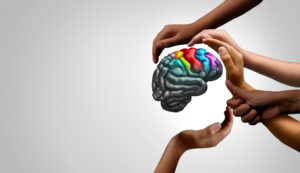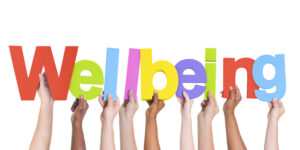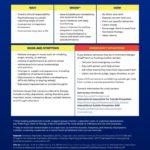 This article seeks to clarify some of the differences between the domains of a Coaching Professional, versus a Mental Health Professional. And the common place that both professions work with, yet from different perspectives – the well-being of the person.
This article seeks to clarify some of the differences between the domains of a Coaching Professional, versus a Mental Health Professional. And the common place that both professions work with, yet from different perspectives – the well-being of the person.
What is a Coaching Professional?
I’m defining a “Coaching Professional” as a person who has undertaken at least 100 hours of coaching-specific skills development and training, that culminates in a professional certification that indicates “proficiency” of ability to work with people as a Professional Coach.
The International Coaching Federation definition: “Coaching is Partnering with clients in a thought-provoking and creative process that inspires them to maximize their personal and professional potential. The process of coaching often unlocks previously untapped sources of imagination, productivity and leadership.”
Coaching is a specialized profession in the “forward movement” of people, meaning starting from where the client is today, right now (Here), defining where they want to be next (There), and what’s in the middle to explore (their Gap).
The Profession of Coaching has worked diligently through it’s professional associations over the past 25+ years to separate itself from Mental Health Services. This has been (and continues to be) achieved through Codes of Ethical Conduct for coaching professionals, and defining Coaching Core Competencies that individuals can be certified in at various levels of expertise.
Coaching can (and does) enhance mental wellbeing, as well as other domains of wellbeing including Intra-personal (with Self such as physical, spiritual, emotional), and Inter-personal (with Others such as with relationships, groups, teams and society).
What is a Mental Health Professional?
Mental Health Services is a specialized set of professions that support or treat people with mental disorders, or mental difficulties.
The World Health Organization (WHO) defines mental health as;
 “A state of well-being in which the individual realizes his or her own abilities, can cope with the normal stresses of life, can work productively and fruitfully, and is able to make a contribution to his or her community”.
“A state of well-being in which the individual realizes his or her own abilities, can cope with the normal stresses of life, can work productively and fruitfully, and is able to make a contribution to his or her community”.
According to WHO, mental health includes “subjective well-being, perceived self-efficacy, autonomy, competence, intergenerational dependence, and self-actualization of one’s intellectual and emotional potential, among others”.
From the perspectives of positive psychology or of holism, mental health may include an individual’s ability to enjoy life and to create a balance between life activities and efforts to achieve psychological resilience.
Cultural differences, subjective assessments, and competing professional theories all affect how one defines “mental health.”

In summary, WHO gives these key facts:
- Mental health is more than the absence of mental disorders.
- Mental health is an integral part of health; indeed, there is no health without mental health.
- Mental health is determined by a range of socioeconomic, biological and environmental factors.
What’s the overlap between a Coaching Professional and a Mental Health Professional?
The overlap between these Professions is in the concern for the well-being of each individual on the planet.

“How” each Professional goes about working with an individual is not the only determining factor. “What” is being addressed in an individual is the most important difference.
Professionally trained coaches are skilled to work with human beings in all types of life situations. All coaching is human coaching, yet there are niches that range from executive, business, life, spiritual, end of life, and many more specialties that coaches work in.
However, coaches* are not trained professionals in the domains of past trauma which could involve mental, physical or emotional abuse. Nor in the domains of current trauma being faced because of life circumstances (such as grieving, racial inequality, gender inequality, or workplace abuse).
*Many coaches are also trained Mental Health Professionals. Yet most clearly differentiate between when they are engaging as a Professional Coach versus when they are engaging as a Mental Health Professional.
Why it’s Important to Distinguish a Professional Coach from a Mental Health Professional
The well-being of the individual is always a first priority for any person engaged in a helping profession.
Coaches need to know the boundaries of their domain, and how to recognize when a client may be better served by a Mental Health Professional in tandem with coaching, or instead of coaching.
Often clients come to coaching to support their well-being, and a coach can support them determine what might be a Mental Health Professional topic, and what might be a Coaching Professional topic. I’ve worked with many clients who engage me as their coach, at the same time as engaging a therapist or counselor.
I’ve written an article, Ethics Traps for Coaches which you received when you signed up for The Coaching Brief newsletter (or will if you do).
Ethical Practices a Professional Coach Engages With
The ICF Core Competencies begin with the competency called, “Demonstrates Ethical Practice” and refers to a larger body of work the ICF undertakes to define their Code of Ethics which are periodically updated to be most relevant to our professional conduct as coaches.
Below are some relevant parts from the ICF Code of Ethics for Professional Coaches:
Standard 8. Section I – Responsibility to clients.
As an ICF Professional, I:
- Remain alert to indications that there might be a shift in the value received from the coaching relationship. If so, make a change in the relationship or encourage the Client(s)/Sponsor(s) to seek another coach, seek another professional or use a different resource.
Ethical Interpretive Statement to Standard 8
 ICF Professionals are expected to remain alert for indications which go beyond their capabilities as a coach. Therefore, it is particularly important to learn as a coach how to recognize in a timely manner whether a client will be best served by another professional service provider. If they are unable to support the client, they may need to refer the client to other modes of support such as counseling, therapy, legal, tax, medical, nutrition, etc. In case of doubt, the ICF professional should seek expert advice.
ICF Professionals are expected to remain alert for indications which go beyond their capabilities as a coach. Therefore, it is particularly important to learn as a coach how to recognize in a timely manner whether a client will be best served by another professional service provider. If they are unable to support the client, they may need to refer the client to other modes of support such as counseling, therapy, legal, tax, medical, nutrition, etc. In case of doubt, the ICF professional should seek expert advice.
It is useful to build a network that includes coaches of other orientations as well as therapists, etc. in the event a referral is requested.
ICF supplies these two resources as well:

One Sheet for Referring to Therapy

ICF White Paper Referral to Therapy Guidelines
In Closing…
Coaching Companies need to be very aware of the differences between a Coaching Professional and a Mental Health Services Professional, and ensure that the marketplace, their clients, and their coaches are trained in understanding where the boundaries of a Coaching Professional expertise lies, and where it does not.
A Coaching Professional needs to be aware of the boundaries of their expertise, and push back (meaning educate and request clarity) from coaching companies who want to employ them, and who want to blend Coaching Professional services with Mental Health Professional Services, as this is ethically a gray zone for any Coaching Professional to engage with.
Written by Carly Anderson, MCC.
Are you ready to upgrade your coaching skills, and prepare for your next ICF credential?
The Mentor Coaching Group Program is an ICF approved individual / group program with 24 Core Competency CCEs on offer, including 10 hours of mentor coaching.
New MCC and PCC-ACC mentoring programs to be announced on May 15, 2021, to commence from September, 2021
Programs are filled on a first registered and paid basis (after compulsory zoom chemistry meeting occurs). Maximum of 10 participants per group. Member-only resources opened once 6 people registered.
 I offer a rich, experiential mentor coaching group and individual program that has many exclusive offerings for our participants. You can read some testimonials from real people, FAQs, or find out more about The Mentor Coaching Program here
I offer a rich, experiential mentor coaching group and individual program that has many exclusive offerings for our participants. You can read some testimonials from real people, FAQs, or find out more about The Mentor Coaching Program here
I’m a long term, experienced and active MCC Assessor. I’ve been trained by the ICF to assess using the PCC Markers. I regularly assess for ICF MCC, PCC and ACC credentials, and was one of the core global team involved in the 2020 update of the PCC Markers to align with the ICF Updated Core Competency Model.
One of the unique offerings for my clients is access to an extensive, exclusive library of MCC, PCC and ACC coaching session recordings, many of which have passed the ICF credential exam process. These are an incredibly valuable self-learning tool, and will accelerate your understanding of competency distinctions at each skill level.
I offer other products including The Upgraded Target Approach: Clarifying the ICF Core Competency Model, as well as Ten Characteristics of MCC Skill Level. You can learn more about these here


